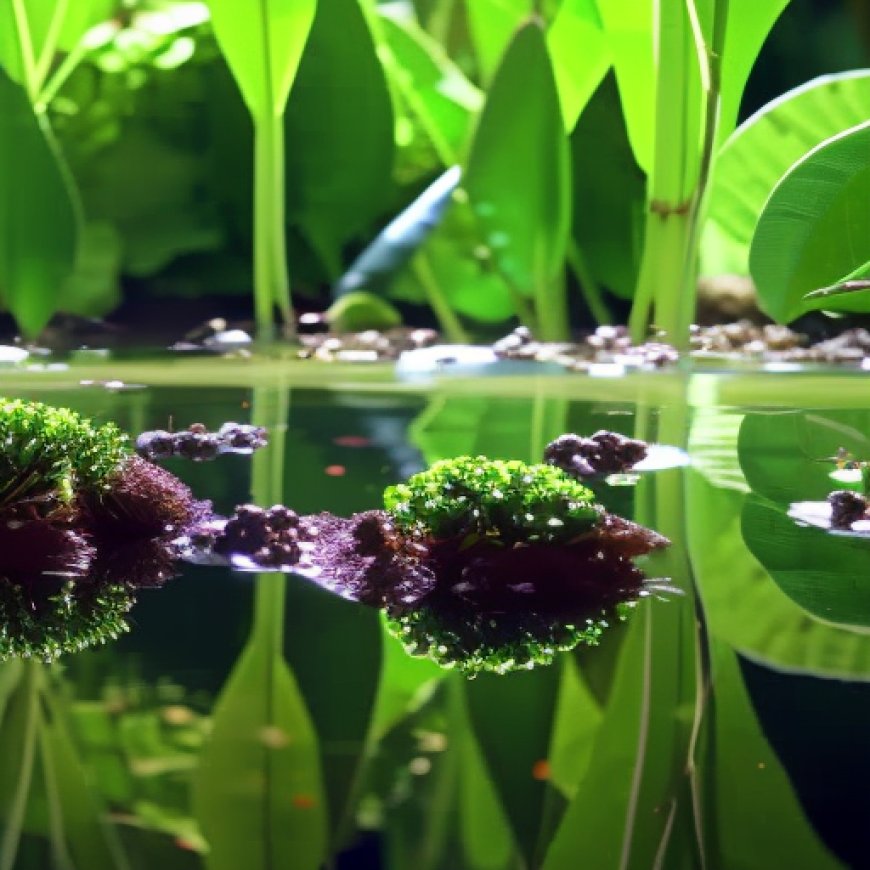How the food industry is working to protect freshwater ecosystems | GreenBiz


Evaluating the Food and Beverage Industry’s Impact on Water Supplies
This is the third of a four-part series taking a closer look at how 72 companies in four industries — beverage, apparel, food, and high tech — performed in Ceres’ new Valuing Water Finance Initiative Benchmark report, which assesses how companies are valuing and acting on water as a financial risk and driving the systemic changes needed to protect freshwater systems around the world.
Fresh water is increasingly in short supply, and the $6 trillion food and beverage industry is at the center of this problem.
While it’s clear that the giant industry, which uses more than 70 percent of the world’s fresh water, depends on and has an outsized impact on the world’s water supplies, what’s often less obvious is how much the industry also affects — and depends on — global ecosystems.
Ecosystems and water risk
The economic value of water and freshwater ecosystems is immense: about $58 trillion annually, equivalent to 60 percent global GDP.
The need for water to irrigate crops may be straightforward, but most benefits or “ecosystem services” are less visible, such as filtering and storing water, enhancing soil health, storing carbon and protecting communities from floods and drought.
The relationship is circular. The amount of water the massive food and beverage industry and its suppliers use, along with the water pollution they churn out, is threatening ecosystems that need clean water to thrive, and ecosystem services that help maintain water supplies companies and communities need.
Freshwater ecosystems are also disappearing, with some being converted to farmland to meet demand for raw ingredients.
Companies and investors are becoming more aware of their critical relationship with freshwater ecosystems. That’s why some investors, through Ceres’ Valuing Water Finance Initiative, are supporting companies working to solve these challenges. These investors have laid out six Corporate Expectations, including using less water, preventing pollution and protecting ecosystems. Investors are also acting on nature-related financial risks more broadly through efforts such as Nature Action 100.
The Valuing Water Finance Initiative benchmark report assessed 72 companies, including 39 in the food industry, on how they are managing water to help mitigate financial risk. The analysis highlights the steps some food companies are taking to reduce their impacts on freshwater ecosystems and strengthen sustainability strategies that support both water resources and nature.
Sustainably sourcing ingredients
Most of the food companies evaluated in the report disclose efforts to source ingredients sustainably. This includes working with suppliers on sustainable agricultural practices that can help reduce the impacts that raising food and animals has on water resources and ecosystems.
For example, Kerry Group partners with its milk suppliers to reduce how much pollution they discharge into nearby waterbodies. This includes using nutrient management practices for the crops grown to feed dairy cows to reduce nutrient runoff. As detailed in the company’s 2022 sustainability report, these practices help mitigate the risk of eutrophication — an overabundance of nutrients in waterbodies that can lead to harmful algae blooms and other problems such as water quality degradation and biodiversity loss.
The need for water to irrigate crops may be straightforward, but most benefits or ‘ecosystem services’ are less visible, such as filtering and storing water, enhancing soil health, storing carbon and protecting communities from floods and drought.
Some food companies also have sustainable sourcing policies that include commitments to promoting efficient water use and pollution reduction in their agricultural supply chains. Some of these commitments, such as scaling regenerative agriculture, have clear links to supporting ecosystem health.
General Mills aims to advance regenerative agriculture on 1 million acres of farmland by 2030. The company is partnering with local organizations in regions where it sources its key ingredients to help farmers — both within and outside of its supply chain — transition to regenerative agriculture systems. Implementing regenerative agriculture supports desirable outcomes, including soil health, water quantity and quality, and biodiversity. In 2023, General Mills reported more than 500,000 acres were already part of its programs.
Other companies are taking part in projects aimed directly at protecting or restoring specific ecosystems.
Singapore-based Wilmar International, for example, works closely with Indigenous communities in areas designated for protection within a company plantation in Sumatra, Indonesia. The collaboration is helping protect riparian zones and preserve water quality in a river that is an important source of water and fish for the communities.
Setting clear targets to protect ecosystems
This work feeds into the implementation of bolder steps: setting targets aimed specifically at protecting or restoring ecosystems supporting freshwater supplies and aquatic biodiversity.
Danone is among a handful of companies assessed in the benchmark report that have done this. By 2030, the company aims to develop and implement plans to preserve the 55 high-stressed watersheds where it operates using nature-based solutions such as agroforestry and wetland preservation. These approaches will help support biodiversity, soil health improvement and sustainable water management, as detailed in the company’s 2022 CDP water security report.
Water and ecosystems play a fundamental role in food production. Food companies need to treat water scarcity and pollution and ecosystem loss as joint problems with joint solutions.
Kirsten James is senior program director for water at the nonprofit sustainability organization Ceres.
Source: greenbiz.com








